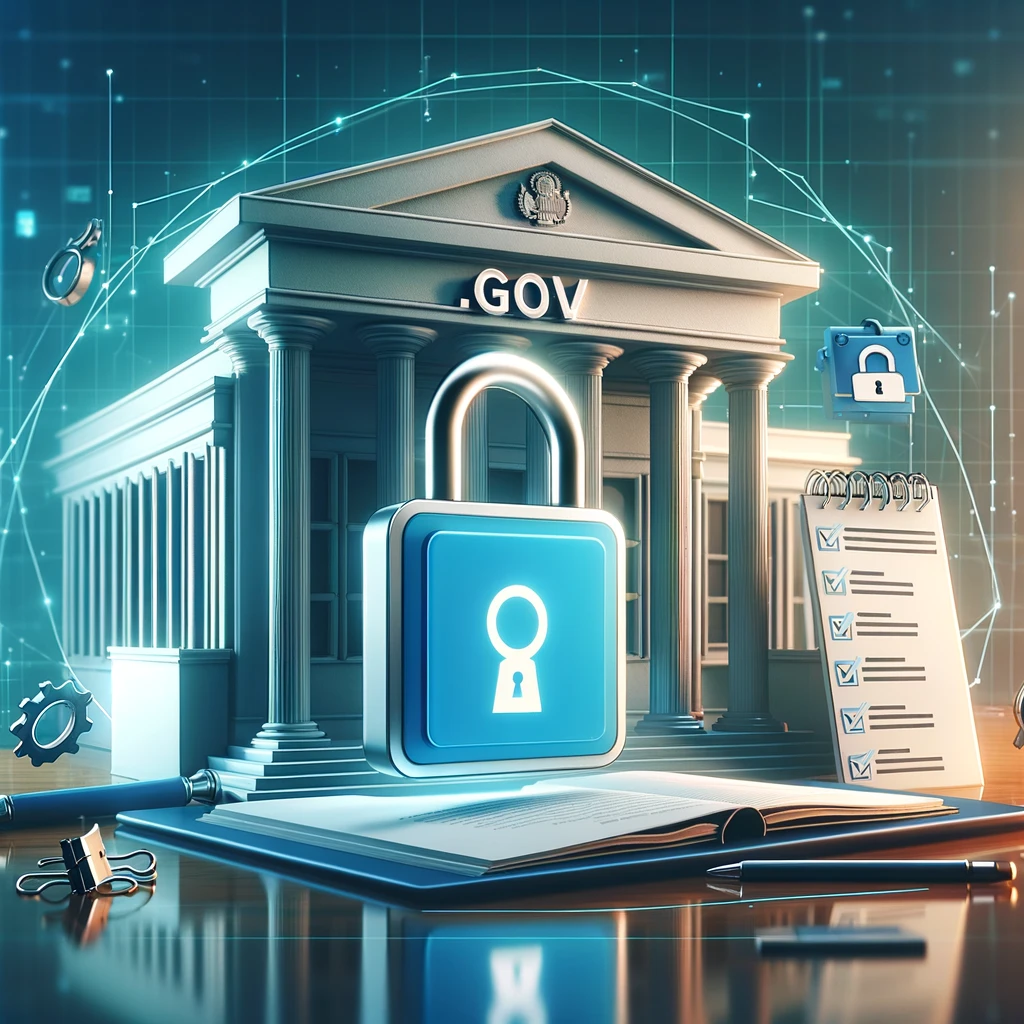In the vast expanse of the internet, domain names serve as crucial identifiers for entities and organizations. Among these, the .gov domain stands out due to its prestigious association with government entities. However, the exclusivity of this domain often leads to questions about its accessibility. This detailed guide aims to demystify the process and eligibility criteria for obtaining a .gov domain and email, providing a comprehensive overview for individuals and organizations interested in this prestigious online presence.
Understanding the .gov Domain
The .gov domain is a top-level domain (TLD) that is reserved specifically for government entities in the United States. Unlike generic top-level domains (gTLDs) like .com, .org, or .net, the .gov domain is tightly regulated and managed by the General Services Administration (GSA), a federal agency. Its primary purpose is to provide a distinguishable and secure online identity for federal, state, local, and tribal government operations.
Eligibility Criteria
Federal Government
For federal agencies, obtaining a .gov domain is a straightforward process, as they inherently qualify for the domain. These agencies need to submit an application through the appropriate channels within the GSA, demonstrating their federal status.
State and Local Government
State, local, and tribal governments are also eligible for a .gov domain. The process involves submitting an application that includes authorization from a high-ranking official within the government entity. This ensures that the domain is being requested for official government business and not for personal or unrelated purposes.
Educational Institutions
While most educational institutions typically use the .edu domain, certain public K-12 schools and districts may be eligible for a .gov domain if they are considered part of the local government. However, this is less common and subject to specific criteria and justification.
The Application Process
Authorization: The first step is obtaining authorization from a senior official within the government entity. This involves preparing a formal request detailing the purpose and need for the .gov domain.
Documentation: Applicants must gather and submit the necessary documentation. This includes proof of government status, authorization letters, and any other documents required by the GSA.
Submission: The application and documentation are submitted to the GSA for review. The submission process may vary slightly depending on whether the entity is federal, state, local, or tribal.
Review: The GSA reviews the application to ensure compliance with the eligibility criteria. This process may involve additional queries to the applicant for clarification or additional information.
Approval and Registration: Upon approval, the entity is notified, and the domain is registered. The GSA provides guidelines for setting up and managing the .gov domain and associated email addresses.
Limitations and Considerations
Exclusivity: The .gov domain is exclusively for governmental entities. Private businesses, individuals, and non-governmental organizations are not eligible.
Verification Process: The application process involves a rigorous verification procedure to ensure that the domain is granted only to legitimate government entities.
Cost: While obtaining a .gov domain may involve some cost, the primary barrier is the eligibility criteria rather than the expense.
The .gov domain is a mark of credibility and authenticity for government entities, providing a secure and distinguished online presence. However, its acquisition is limited to eligible government entities through a stringent application process overseen by the GSA. For those qualifying entities, a .gov domain and email address not only enhance the visibility and trustworthiness of their digital communications but also secure their place in the official digital landscape of government operations.
.Gov Domain
Having a .gov Domain Benefits
Having a .gov domain provides several benefits for government entities, making it an attractive online presence option. Some of the key benefits of having a .gov domain include:
1. Enhanced credibility: The .gov domain enhances the credibility of government entities among the public, lending authenticity and trustworthiness to online communications.
2. Clear identification: The exclusivity of the .gov domain provides a clear identification of government entities, differentiating them from private businesses, non-governmental organizations, and individuals.
3. Improved security: The stringent verification process ensures that the .gov domain is granted only to legitimate government entities, providing an added layer of security to online communications.
4. Consistency: The .gov domain provides consistency across government entities, following a well-established format that is easy to recognize and use.
5. Free of charge: Unlike other domain extensions, the .gov domain is free of charge for eligible government entities, making it an affordable option for establishing a government-specific online presence.
With these benefits, having a .gov domain can be a valuable asset for government entities, providing a trusted and official online presence that emphasizes their commitment to transparency, accountability, and good governance.
.gov Domain FAQ
Who is eligible for a .gov domain?
U.S.-based government organizations at all levels are eligible, including federal, interstate, state or territory, tribal, county, city, special district, and school district entities.
Who manages the .gov domain program?
The .gov domain is managed by the Cybersecurity and Infrastructure Security Agency (CISA).
How much does a .gov domain cost?
There is no fee to register a .gov domain; it is available for free to eligible organizations.
How do I start a .gov domain request?
You must be a government employee or working on behalf of a government organization and verify your identity through Login.gov to request a .gov domain.
What are the requirements for authorizing a .gov domain request?
An authorizing official with significant executive responsibility within the organization must approve the domain request.
Does CISA provide web and email hosting services for .gov domains?
No, CISA does not offer DNS hosting or web/email hosting services for .gov domains.
What support does CISA offer for .gov domains?
CISA offers domain registration, name consultation, and management support.




